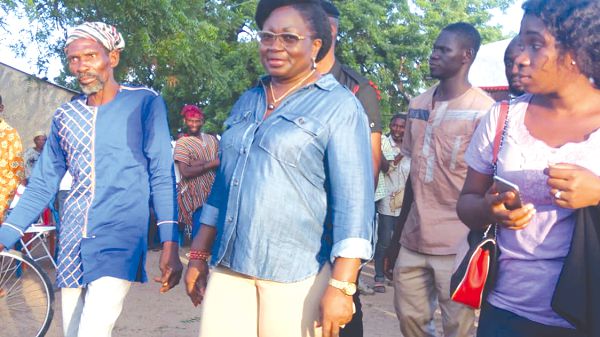
Settlers in Gbele Reserve to move out March 2020
Over 300 settlers in the Gbele Resource Reserve in the Sissala-West Municipality in the Upper West Region have accepted to move out to a new site constructed for them by the government by March 2020.
The new site has modern housing units with social amenities including a clinic, places of convenience and boreholes.
It was built on a 13-hectare land out of a total of 313 hectares acquired by the government.
The remaining 300 hectares of arable land have been reserved for use by the settlers for farming purposes.
A dug-out which is almost complete has also been provided at the new site to provide water in the dry season for agriculture.
Development of reserve
The movement of the settlers will make way for the re-development of the Gbele Resource Reserve which is the fourth largest in the county after Mole, Diggya and Bui.
This wildlife estate covers a total of 13,460 square kilometres consisting of seven national parks, six resource reserves, two wildlife sanctuaries, one strict nature reserve, five ramsar sites and one community-based reserve.
The reserve which has a potential to attract tourists contains a lot of animal species such as roan antelopes, bush bucks, water bucks, monkeys and elephants as well as birds.
The River Janali, which runs through the reserve and develops into two large rivers, the Kulpawn and the Sisili Rivers, both of which are tributaries of the White Volta, provide a beautiful scenery in the area.
Resettlement programme
The government resettlement programme for the Gbele community started in 2011 as an effort to conserve the environment.
The settlers had earlier moved to the 565 square-kilometre reserve which spans three districts, namely Diffiama/Bussie/ Issa, Sissala-West and Sissala-East districts in search of fertile land to farm since they claimed where they were farming was no longer fertile.
Minister visits reserve
The Deputy Minister of Environment, Science, Technology and Innovation (MESTI), Ms Patricia Appiagyei, visited the region to interact with the staff of the Wildlife Division of the Forestry Commission and inspected a dug-out which has been constructed to provide water to enable the people to engage in all year-round agriculture.
She said the government was desirous of marketing the eco-tourism potential of the reserve and expressed her gratitude to the people for agreeing to move out of the reserve peacefully.
Compensation to land owners
The Park Manager, Nana Owusu Ansah, said full compensation had been paid to the landowners at Dasima, a community in the same district, hence the need for the settlers to move out when their farming activities for this season was over for the reserve to regain its proper status.
The presence of the settlers, he said, was a threat to the fauna since they were poaching the animals and degrading the forest through their farming activities.
He was of the view that if the resources in the reserve were well harnessed, it would generate income for the people in the district and the country at large.
According to him, the construction of facilities such as a bird-view platform, culverts, Irish crossing, staff accommodation and boreholes for wildlife would improve the tourism potential of the reserve.
He, however, expressed concern about the bad road network to the reserve, saying, “a good road plays a vital role in tourism.”
